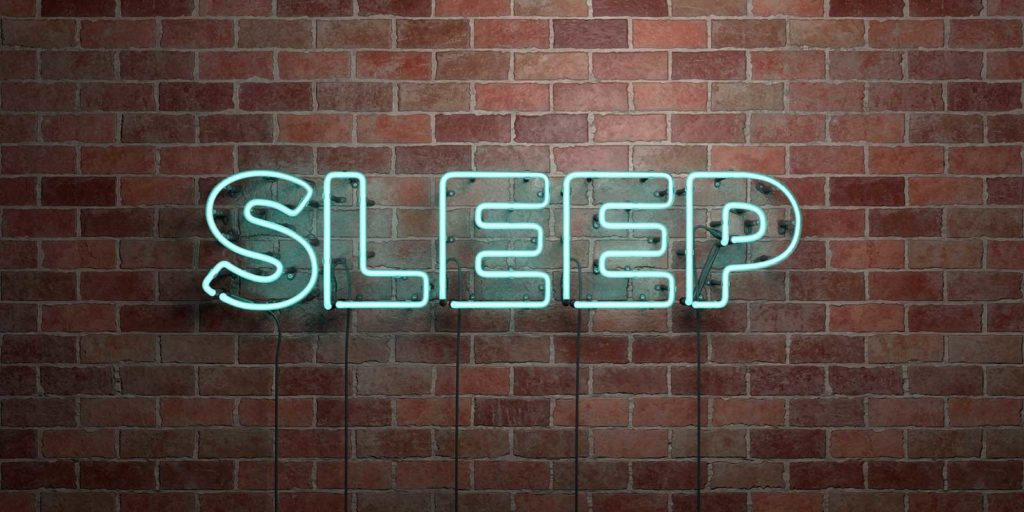There’s nothing like a good night’s sleep. You let your mind rest and your body recharge so you’re healthy and ready to take on the challenges of another day. It also helps you build muscles, have better sex, and be in a better mood, but with the stress of everyday life combined with the distractions television and smart technology can cause, sleep is elusive to many people. This can contribute to conditions like diabetes and depression, and it can even lower your testosterone level.
If you always feel tired or worn down, here are some tips you can use to get a better night’s sleep.
Create a sleep routine
Shutting off your brain and giving your body time to rest isn’t always easy, and our constant connection to work, family and friends only make it harder. By creating a smart sleep routine, you can train your body to get in the habit of sleeping again. For a successful sleep routine, you need to plan on a time to go to sleep and a time to wake up. Many of us haven’t had bedtimes for years, and at the beginning, it may be hard to wind down and go to sleep at a particular time, but over the course of a few weeks, you can get yourself in the habit of consistently going to bed at the same time every night. Likewise, having a specific time to wake up every morning will also help you keep to your sleep schedule. The first few days will be rough, but eventually, you can retrain your body and sleep easier because you know it’s time to rest.
Wear yourself out with a workout
There are tons of benefits to working out, and one of those is better sleep. It’s simple really. If you exercise regularly, you’ll be more tired at the end of the day. Studies have shown that people who regularly workout take less time to fall asleep and sleep longer than individuals who don’t. And it makes sense: when you workout, you’ve used up more of your energy and will be more tired at the end of the day. Regular exercise can also help people who suffer from sleep apnea by decreasing the severity of your symptoms. So go for a run, take that class, or have a swim. You’ll not only stay healthy but also improve the quality of your sleep.
Remove technology from your bedroom
Your brain creates associations based on your past behavior, so if your room is more of a tech hub than a sleeping zone, you could be inadvertently sabotaging your sleep and your health. A solution to this is to ban all technological devices from your bedroom, including smartphones, TVs, and tablets. While scrolling through Facebook at midnight can help you pass the time, it won’t help you fall asleep. In fact, studies have shown that the blue lights our smart devices omit mimics the brightest light of the day and stops the production of melatonin, the chemical responsible for telling your brain it’s time to sleep. Instead of playing on your phone or watching another episode on Netflix, read a book or meditate starting about an hour before bed. It can help you get to sleep easier and sleep longer.
Switch To A Different Bulb
As we just discussed, blue lights from mobile devices are counterproductive when it comes to sleep, but did you know that’s also true for many LED lights? As unlikely as it seems, a soft red light might help you solve some of your sleep problems. In studies, people exposed to red light slept significantly better than those exposed to white or blue lights. It’s also a good color to use if you have a nightlight in your room or bathroom.
Make Your Sleeping Space Sacred
Your brain makes important associations every day. We know the bathroom is for washing, the kitchen is for eating and, we should associate the bedroom with sleeping, but this isn’t always the case. If you use your bedroom as the place to watch TV, work, or for anything other than sex and sleep, you can be telling your brain that this is a room for playing, not sleeping. Although this association is subconscious, it can make it harder for you to get a good night’s sleep, which can have dramatic effects on your health. The trick is to remove these distractions and make your bedroom a special space that’s just for sleeping. After a few weeks, you’ll notice a difference when you head to bed.
Getting your eight hours of sleep each night is vital to your overall health, but for many people, it seems impossible. By using these tips, you can start creating a sleep system that works for you. If you’re still having trouble sleeping, or have been having problems over a period of time, please consult your doctor to make sure it isn’t something more serious. Then hit the hay — your body will thank you.

